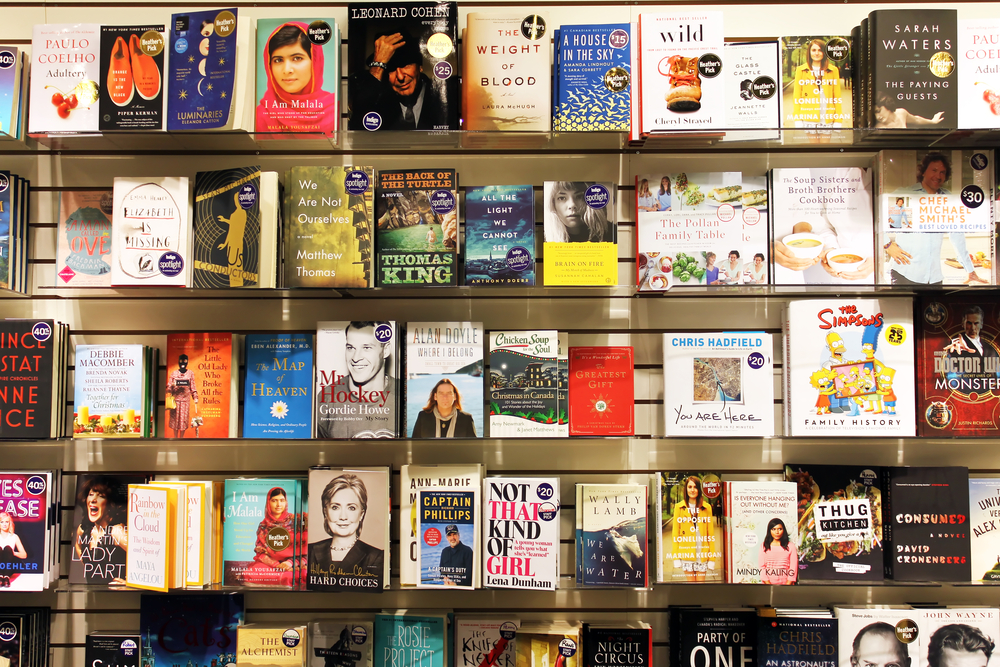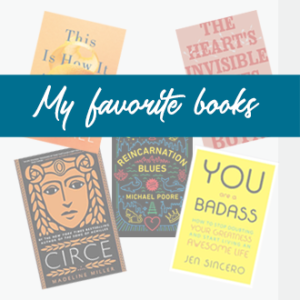Everything I’ve learned about how to find a literary agent
I’m in the midst of querying agents with my first manuscript, so when another writer in a Facebook group asked for some advice, I wrote this up. This is everything I’ve learned about the query process so far, from my own experience and from other writers. This information is for fiction writers who are interested in seeking agent representation for traditional publishing. Of course, self publishing is also an option and works well for many authors, especially if you already have a good platform.
Keep in mind I have yet to sign with an agent, so I would not consider myself a querying expert, but I’ve learned a lot through this process. Hopefully it will pay off!
First off, for fiction, you have to have the manuscript finished before you query. If agents ask to see the full manuscript, you need to have it ready to go. (The process for non-fiction is different; you typically don’t need to have the manuscript finished but you do need a proposal.) I’ve heard rumors of authors signing with an agent based solely on a synopsis before they finished the manuscript, but from what I’ve heard, this is a rare exception.
How do I find agents to query?
To find agents, start by looking at comparable titles. Comps can be books that are similar in theme or intended audience, not necessarily plot. Some agents will ask you to send comp titles with your query so it’s a good idea to have a few solid titles in mind. Career Authors has a good article about choosing comp titles.
Take your comps and find out who represented those authors. A google search will usually do the trick, or you can check the acknowledgements in the back of the book.
Look at current publishing deals. Publishers Marketplace is the go-to resource for this. Membership is a bit pricey ($25 per month), but you get a daily email that lists new publishing deals, so you can see who is actively selling in your genre. You can also access lists of the top deal makers in your genre and a database of who represents whom. Not all agents and deals are listed here (information has to be reported to Publishers Marketplace to be included), but a lot are.
Manuscript Wish List has also been a great resource for me. You can search for agents by keywords, so in my case I found several agents by searching for “social issues” and “feminism.” Always check agency websites to confirm that the agent still works there, as they may have moved and not updated their profile.
A lot of agents are also on Twitter and use the hashtag #MSWL (manuscript wish list) to indicate what they’re currently looking for.
You can also participate in pitch events on Twitter like PitMad or DVpit. These happen on specific dates throughout the year so check the websites for upcoming events. How it works is, you post your pitch along with the appropriate hashtags, and if an agent likes your pitch, you are welcome to query them. You still have to go through the normal query process, but agents are likely to give priority to queries that stem from these events.
Writing conferences also often give you the opportunity to meet with agents face to face, usually for an additional fee on top of the cost of the conference. I’ve heard of people walking away from these types of events with multiple offers, but again, don’t assume that will be the case.
What do I send with my query?
Once you identify the agents you want to query, look them up on their websites and find their submission guidelines (these are typically clearly stated on the site). Different agencies will ask for different things so follow directions carefully. (This should go without saying but you’d be surprised.)
Agencies will often ask that you query only one agent at their agency. If the agent passes but feels that it will be a good fit for someone else at that agency, they will often share it with them. Again, check submission guidelines for each agency’s policy. Some will allow you to query another agent if the first one passes. Do not re-query the same agent, unless they have indicated that they would be willing to read your submission again after certain changes have been made.
Most agencies will not accept attachments; they want all info pasted into the body of your email. Some will have a form on their website for submissions. Most ask for a query letter + the first chapter or first 10 pages, etc. Some want just a query letter. Again, follow the rules. Disregarding their guidelines is likely to get your submission deleted without even being read.
How do I write a query letter?
Your query letter should be about one page. Keep it to the point. I recently attended a webinar that stated a query letter should be 300 words or less. This was the first time I had heard this, so I went back and revised my query letter accordingly as it was slightly over 400 words.
Writer’s Digest has a good breakdown of how to write a query letter. You don’t need a full synopsis of the book unless they ask for it. You should, however, include a strong hook. Your hook is typically one sentence that distills your story down to its essence. The hook is what makes someone keep reading. Just like you need to give readers a reason to keep reading your story, you need to give agents a reason to keep reading your query. Agents receive a lot of query letters. Make sure yours has something that catches their attention.
It’s also a good idea to include what’s known as a “bonding open.” in your opening statement, explain why you are reaching out to that particular agent. Maybe they have represented a book that is similar to yours, or maybe something on their manuscript wish list caught your attention. You don’t need to open by stating you are seeking representation. This is the entire point of a query.
Also see here for 10 do’s and don’ts of writing a query letter.
When you start querying, you can track your submissions on Query Tracker, which is a great free resource that also has some helpful stats about average agent response times.
When can I expect a response?
From what I hear, the average response time for a query these days is 1-3 months, so don’t expect anything to happen right away. If an agent requests a full manuscript, it may take 6 months for them to respond.
When (not if) you start getting rejections, don’t panic. I’ve seen people saying they got 100 rejections before signing with an agent. So, be prepared to send lots of queries. Remember it only takes one yes.
I have heard writers say, however, that it’s a good idea to send out queries in small batches of no more than 5 at a time. If your queries don’t yield at least one request for a partial manuscript, go back and take another look at your query. Is your hook strong enough? Is your letter too long? Are you including unnecessary information? Make any necessary adjustments before you send out another batch.
You may get rejections along the lines of “I’m afraid I’m not the right agent for your project, but tastes vary widely among agents so don’t give up.” These are form responses. You may also get something akin to “I had a hard time connecting with the voice.” This is agent speak for “it’s not you, it’s me.” For whatever reason, they didn’t connect with your story so they’re attributing that to the voice. Unless you hear this repeatedly and in conjunction with specific feedback, don’t immediately jump to the conclusion that you need to rework your manuscript to change the voice. Voice is a very subjective thing, and not everyone will connect with your work. This is to be expected.
Make it a regular practice to keep looking for more agents. Often agents will open themselves back up to queries after they’ve been closed, so continue to search the MSWL website and hash tag. Newer agents at established agencies are good to target because they are actively building their lists but they have the reputation of the agency behind them.
If an agent asks for a full manuscript on an exclusive basis (meaning you aren’t sharing it with anyone else simultaneously), don’t be afraid to ask them for a deadline. You can’t expect to sit around for 6 months and not respond to any other requests.
It’s okay to send a (polite) nudge after a reasonable amount of time, especially if you get an offer and want to follow up with another agent before accepting. Don’t feel like you have to accept the first offer that comes along. Talk to the agent, make sure you feel comfortable with them and they seem like a good advocate for your story. They are going to have to turn around and sell it to a publisher, so you want someone who really believes in your work.
Have any querying tips to add? Leave a comment below!
Tags In
Karen Eisenbraun
Related Posts
2 Comments
Leave a Reply Cancel reply
Categories
- Books (13)
- Nutrition (1)
- Personal growth (9)
- Spirituality (2)
- Writing (2)









This was really helpful! Found your comment on Barbara Poelle’s querytracker page. It must have been crushing to wait three months for that rejection on full manuscript request, but I loved the note you shared from her about your obvious talent and her excitement to see what you do next. This process is so much tougher than everyone says.
I’m so glad you found this helpful! It is definitely tough. I have put that manuscript aside after 90 or so queries. But I feel like I will be better prepared for the query process next time, and Barbara will be the first agent I reach out to!